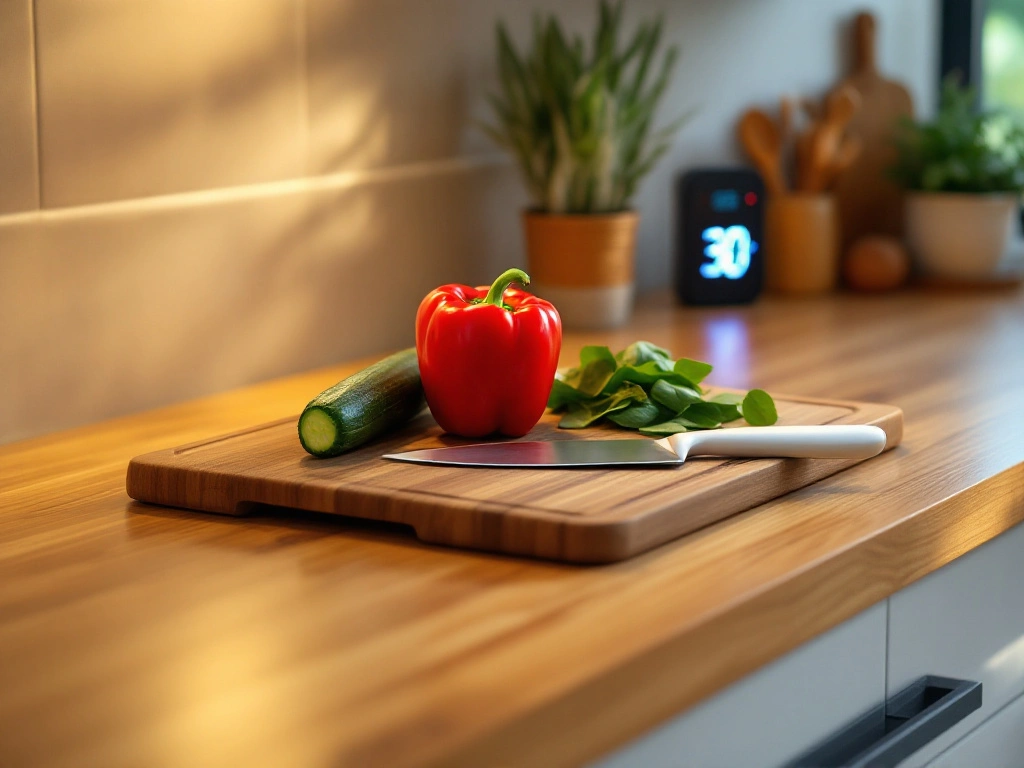How to Prepare Healthy Snacks for the Whole Day: A Comprehensive Guide to Nutritious and Delicious Eating
Introduction
In today’s fast-paced world, maintaining a healthy diet can be a challenge. Between work, family, and social commitments, finding time to prepare nutritious meals often falls by the wayside. However, snacking doesn’t have to be synonymous with unhealthy choices. With a little planning and creativity, you can prepare healthy snacks that keep you energized and satisfied throughout the day. This article will provide you with a comprehensive guide on how to prepare healthy snacks for the whole day, ensuring you stay on track with your nutritional goals without sacrificing taste or convenience.
The Importance of Healthy Snacking
Why Snacking Matters
Snacking is often misunderstood. While it can lead to weight gain if done improperly, strategic snacking can actually support weight management, boost energy levels, and improve overall health. The key is to choose snacks that are nutrient-dense rather than calorie-dense. Healthy snacks can help stabilize blood sugar levels, prevent overeating at meal times, and provide essential nutrients that might be missing from your main meals.
The Role of Macronutrients
Understanding the role of macronutrients—carbohydrates, proteins, and fats—is crucial for preparing balanced snacks. Each macronutrient plays a unique role in maintaining energy levels and satiety:
- Carbohydrates: Provide quick energy. Opt for complex carbs like whole grains, fruits, and vegetables.
- Proteins: Essential for muscle repair and satiety. Include sources like nuts, seeds, yogurt, and lean meats.
- Fats: Necessary for hormone production and nutrient absorption. Choose healthy fats from avocados, nuts, and olive oil.
The Importance of Micronutrients
Micronutrients, including vitamins and minerals, are equally important. They support various bodily functions, from immune health to bone strength. Incorporating a variety of fruits, vegetables, nuts, and seeds into your snacks ensures you get a broad spectrum of these essential nutrients.
Planning Your Snacks
Assessing Your Nutritional Needs
Before diving into snack preparation, it’s important to assess your nutritional needs. Factors such as age, gender, activity level, and health goals will influence the types and quantities of snacks you should consume. For example, an athlete may require more protein-rich snacks, while someone with a sedentary lifestyle might focus on low-calorie, high-fiber options.
Creating a Snack Schedule
Planning your snacks throughout the day can help you avoid unhealthy impulse eating. Consider dividing your snacks into three categories:
- Morning Snack: Aim for a balance of protein and carbs to keep you energized until lunch.
- Afternoon Snack: Focus on protein and healthy fats to combat the mid-afternoon slump.
- Evening Snack: Choose something light and satisfying, like a piece of fruit or a small handful of nuts, to avoid overeating before bed.
Portion Control
Even healthy snacks can contribute to weight gain if consumed in large quantities. Be mindful of portion sizes. Pre-portioning snacks into individual servings can help you avoid overeating.
Healthy Snack Ideas for the Whole Day
Morning Snacks
- Greek Yogurt with Berries and HoneyIngredients: 1 cup of Greek yogurt, ½ cup of mixed berries, 1 teaspoon of honey.Preparation: Mix the berries and honey into the yogurt. This snack is rich in protein, antioxidants, and natural sweetness.
- Apple Slices with Almond ButterIngredients: 1 apple, sliced, 2 tablespoons of almond butter.Preparation: Dip the apple slices into the almond butter. This combination provides a good mix of fiber, healthy fats, and protein.
Afternoon Snacks
- Hummus and Veggie SticksIngredients: ½ cup of hummus, 1 cup of mixed vegetable sticks (carrots, celery, bell peppers).Preparation: Dip the veggie sticks into the hummus. This snack is high in fiber, protein, and healthy fats.
- Trail MixIngredients: ¼ cup of mixed nuts, 2 tablespoons of dried fruit, 1 tablespoon of dark chocolate chips.Preparation: Combine all ingredients in a small container. Trail mix is a convenient and portable snack that offers a good balance of macronutrients.
Evening Snacks
- Cottage Cheese with PineappleIngredients: ½ cup of cottage cheese, ½ cup of pineapple chunks.Preparation: Mix the pineapple into the cottage cheese. This snack is high in protein and provides a sweet, satisfying end to the day.
- Dark Chocolate and AlmondsIngredients: 1 ounce of dark chocolate, 10 almonds.Preparation: Enjoy the dark chocolate and almonds together. This combination offers a rich source of antioxidants and healthy fats.
Tips for Preparing Healthy Snacks
Batch Cooking and Pre-Portioning
One of the most effective ways to ensure you have healthy snacks on hand is to prepare them in advance. Spend a few hours on the weekend batch cooking and pre-portioning snacks for the week. This not only saves time but also helps you stick to your nutritional goals.
Incorporating Variety
Eating the same snacks every day can become monotonous. Incorporate a variety of foods to keep things interesting. Rotate between different fruits, vegetables, nuts, seeds, and protein sources to ensure you’re getting a wide range of nutrients.
Reading Labels
When purchasing pre-packaged snacks, always read the labels. Look for snacks with minimal added sugars, unhealthy fats, and artificial ingredients. Opt for products with whole food ingredients and recognizable names.
Staying Hydrated
Sometimes thirst is mistaken for hunger. Ensure you’re drinking enough water throughout the day. Herbal teas and infused water can also be great alternatives to keep you hydrated and add variety to your beverage choices.
Overcoming Common Challenges
Time Constraints
One of the biggest challenges to preparing healthy snacks is finding the time. To overcome this, prioritize simplicity. Choose snacks that require minimal preparation, such as pre-cut vegetables, pre-portioned nuts, or single-serving yogurt cups.
Cravings and Temptations
Cravings for unhealthy snacks can derail your efforts. To combat this, keep healthy alternatives readily available. For example, if you crave something sweet, reach for a piece of fruit or a small square of dark chocolate instead of a candy bar.
Budget Concerns
Healthy eating doesn’t have to be expensive. Buy in bulk, choose seasonal produce, and take advantage of sales and discounts. Preparing snacks at home is generally more cost-effective than buying pre-packaged options.
Conclusion
Preparing healthy snacks for the whole day is a manageable and rewarding endeavor. By understanding your nutritional needs, planning ahead, and incorporating a variety of nutrient-dense foods, you can create snacks that are both delicious and beneficial for your health. Remember to stay mindful of portion sizes, read labels carefully, and stay hydrated. With these strategies in place, you’ll be well-equipped to make healthy snacking a seamless part of your daily routine.
Final Advice
Start small and gradually incorporate more healthy snacks into your diet. Experiment with different recipes and combinations to find what works best for you. Most importantly, listen to your body and make adjustments as needed. Healthy snacking is not about perfection but about making better choices that contribute to your overall well-being. By following the tips and ideas outlined in this article, you’ll be well on your way to enjoying a healthier, more energized lifestyle.









Add comment